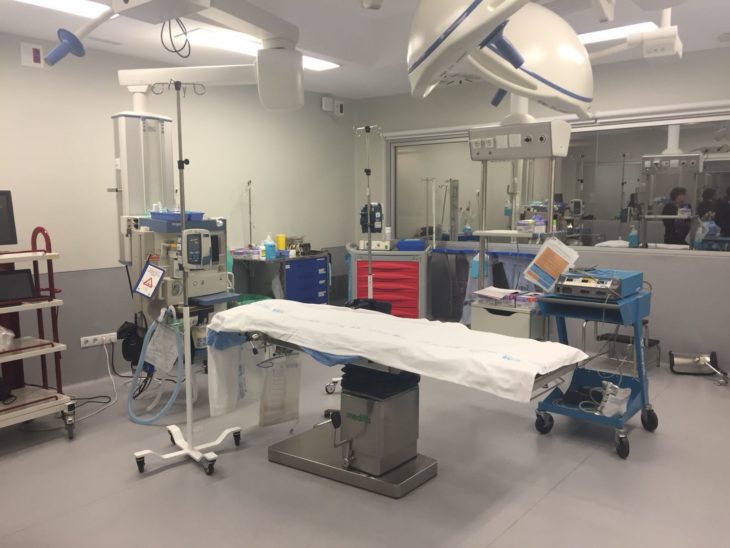EUROsociAL+ is offering support to the Chilean government for the creation of a new prisoner healthcare management model

EUROsociAL+ is offering support to the Chilean government for the creation of a new prisoner healthcare management model. The new model will help to gradually improve the healthcare conditions in prisons and the general health of their populations by redesigning the processes linking the various institutions involved (Ministry of Justice and Human Rights, Ministry of Health and the police) and defining standard procedures that will make the work of these institutions more efficient and more complementary.
As part of this work, from 24 to 31 January 2018, EUROsociAL organized a visit by a delegation from these three institutions to find about the models developed in Spain and Italy. The action brought together two of the EUROsociAL+ Programme departments.
In Spain, the visit was organized by the EUROsociAL+ Programme Democratic Governance Department, in cooperation with the office of the Spanish Ministry of the Interior Secretary General for Prisons. The visit to Spain began with presentations of the Spanish prison healthcare management model by the Sub-Director General for Prison Healthcare Coordination and the Chilean model by a representative of the Chilean Ministry of Health. They were followed by a discussion on the differences between the two models. The delegates then visited two prisons in Madrid (Madrid IV – Navalcarnero and Madrid VI – Aranjuez) and the secure wards for prisoners in a number of hospitals in the Community of Madrid, where they learned about the healthcare facilities and how they operate. Some new practices were highlighted that were of great interest to Chile, such as telemedicine, which reduces the need for patients to travel to normal hospitals for consultations, increasing the efficiency of the care and reducing security risks.
The Italian leg of the visit was organized by the Programme’s Social Policy department, which brought in the Frosinone local health department’s Mental Health and Dependency Pathologies Department. As well as this institution, several experiments of interest to the Chilean reform were identified: the Casa Circondariale Femminile ‘G. Stefanini’ in Roma Rebibbia, Instituto de Custodia Atenuada – ICATT REBIBBIA III Casa, Casa di Reclusione in Paliano, Residence for the Enforcement of Security Measures (REMS) in Pontecorvo and Casa Circondariale in Civitavecchia. These experiments offered examples of Italy’s current prison healthcare management model, the responsibility for which has gradually been transferred from the prison administration to the national healthcare system and the local social services (ASL) by reforms implemented over the last 20 years.
The visit to Italy began in the morning of 29 January with a meeting focusing on the Italian, Spanish and Chilean models. The meeting was attended by the major institutions from Spain, Italy and Chile that were involved in the visit. It proved to be an excellent opportunity for discussing and gaining a mutual understanding of the model currently in force in the three countries as it highlighted the major advances and current challenges. The mutual interest and the exchange of knowledge that took place between the Italian and Spanish institutions should also be noted.
In light of the experiments visited, the Chilean institutions will now start to work on a new healthcare management model for its prisons, with assistance from the Spanish and Italian institutions. A workshop is planned in Santiago at the end of February to lay the foundation for a proposal to be presented to the new administration, which will take office in Chile in March.
Área de políticas de gobernanza democrática. Democratic governance area / EUROsociAL+



